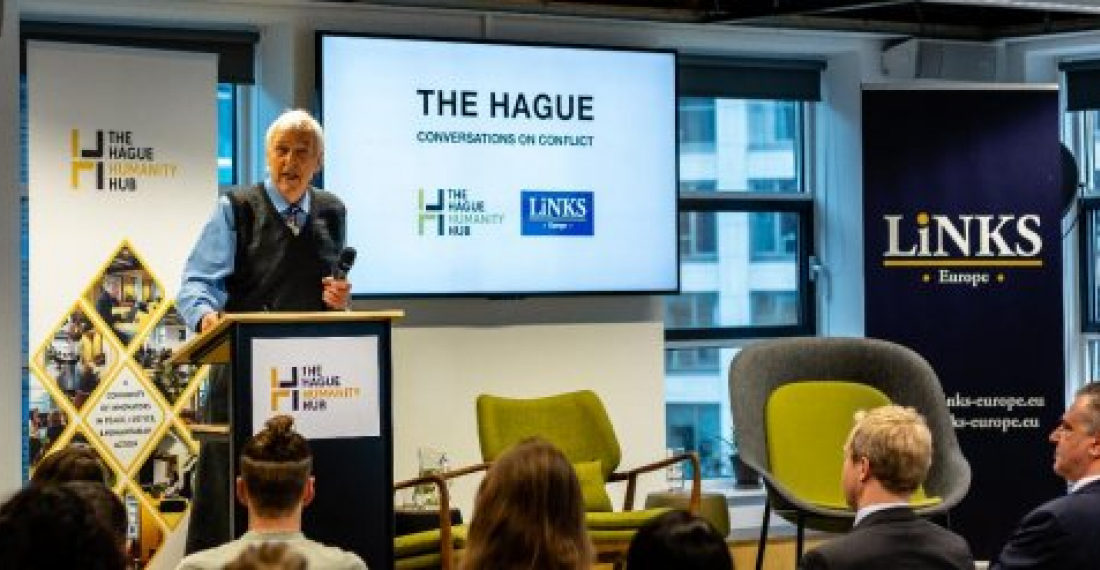In the second in the series, The Hague Conversations on Conflict, Simon Lunn - Senior Associate Fellow at the European Leadership Network and former Secretary General of the NATO Parliamentary Assembly spoke on the role of parliamentary diplomacy in international relations, and particularly in the prevention, mediation and resolution of conflict: ‘Parliamentary Diplomacy - a case study of the NATO Parliamentary Assembly'. Mr. Lunn was then joined by Sven Koopmans MP (VVD) - Head of the Netherlands Delegation to the NATO Parliamentary Assembly who spoke about his experience as a parliamentarian in dealing with international affairs. The event was held at the hague Humanity Hub on Thursday, 27 September 2019.
You can read or download the full text of the lecture and the discussion here
The Hague Conversations on Conflict are a series of discussions, lectures, workshops and networking events launched by LINKS Europe in association with the Hague Humanity Hub, in June 2019. Their aim is to provide a forum where the changing nature of war and conflict can be analysed and assessed, together with the responses of international society.






